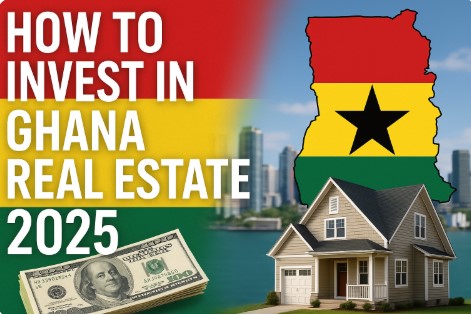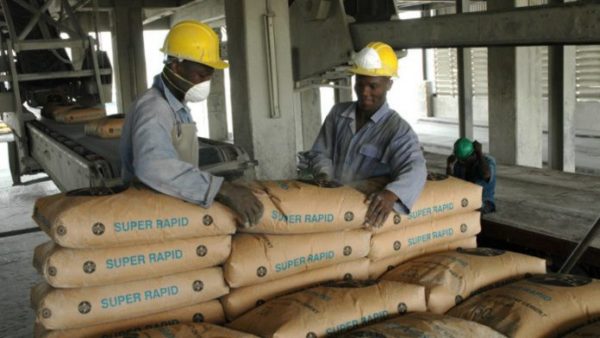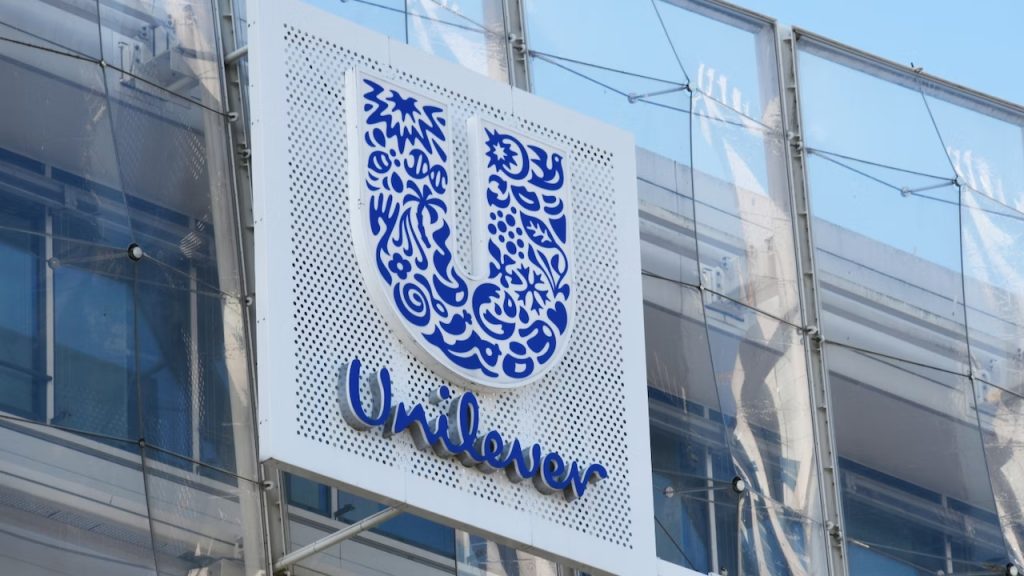How to Invest in Ghana Real Estate (2025 Guide)

Ghana’s real estate market is booming, with major cities like Accra, Kumasi, and Takoradi seeing fast growth. Thanks to a stable political climate, strong economic outlook, and increasing demand for housing and commercial spaces, 2025 is shaping up to be a great year to invest in Ghana’s real estate sector. If you’re thinking about jumping in, here’s a complete guide on how to do it right.
1. Understand the Real Estate Market in Ghana
Before investing, get a clear picture of the market. Ghana’s real estate is divided into:
-
Residential properties (apartments, townhouses, standalone homes)
-
Commercial properties (office spaces, retail shops, warehouses)
-
Industrial and mixed-use developments
-
Hospitality properties (hotels, resorts)
Hot locations include Accra (especially Airport Residential, East Legon, Cantonments), Kumasi, and developing coastal cities.
In 2025, there’s growing demand for affordable housing, student accommodations, and short-stay rentals (thanks to tourism and diaspora visits).
2. Know the Legal Requirements
Foreigners can own property in Ghana, but usually on a leasehold basis (typically 50 years, renewable). Always:
-
Verify land titles at the Lands Commission.
-
Conduct due diligence to avoid litigation or land disputes.
-
Use a qualified real estate lawyer.
Pro Tip: Never pay for land or property without a signed contract and verified documentation.
3. Choose the Right Investment Strategy
Depending on your budget and goals, you can:
-
Buy-to-let: Purchase apartments or houses and rent them out.
-
Fix-and-flip: Renovate old properties and sell at a higher price.
-
Land banking: Buy undeveloped land in growing areas and hold for appreciation.
-
Short-term rentals: Set up Airbnb units, especially in tourist-heavy areas.
Rental yields in Accra range between 7–10% yearly, making it attractive for passive income.
4. Find Trusted Real Estate Agents and Developers
Work with reputable companies. Look for agents and developers registered with:
-
Ghana Real Estate Developers Association (GREDA)
-
Ghana Association of Real Estate Brokers (GAREB)
Visit properties personally or appoint a trusted representative if you’re abroad. Scams can happen, so stay cautious.
5. Explore Financing Options
You can fund your investment through:
-
Personal savings
-
Ghanaian bank mortgages (some banks offer mortgages to foreigners and Ghanaians living abroad)
-
Joint ventures with local partners
Note that mortgage rates in Ghana are generally higher (around 17–24%), so weigh your financing options carefully.
6. Factor in Costs and Taxes
Be aware of additional costs:
-
Stamp Duty (1–3%)
-
Registration and legal fees
-
Property taxes (varies by location)
-
Renovation or furnishing costs (if applicable)
Budget these expenses to avoid surprises.
7. Manage Your Property Well
For rental properties, you can hire property management companies to:
-
Collect rent
-
Maintain the property
-
Handle tenant issues
A good manager keeps your investment profitable and stress-free.
8. Stay Updated on Market Trends
Ghana’s real estate sector is dynamic. Keep an eye on:
-
Government housing policies
-
Infrastructure projects (like new roads, airports, and shopping centers)
-
Economic indicators (such as interest rates and inflation)
Being informed helps you make smarter investment decisions.
Final Thoughts
Investing in Ghana real estate in 2025 is full of opportunity — but success requires preparation. Do your research, work with professionals, and think long-term. Whether you’re looking for rental income, capital gains, or a dream home in West Africa, Ghana offers exciting possibilities for investors worldwide.
Source: thepressradio.com| Ogyem Solomon





